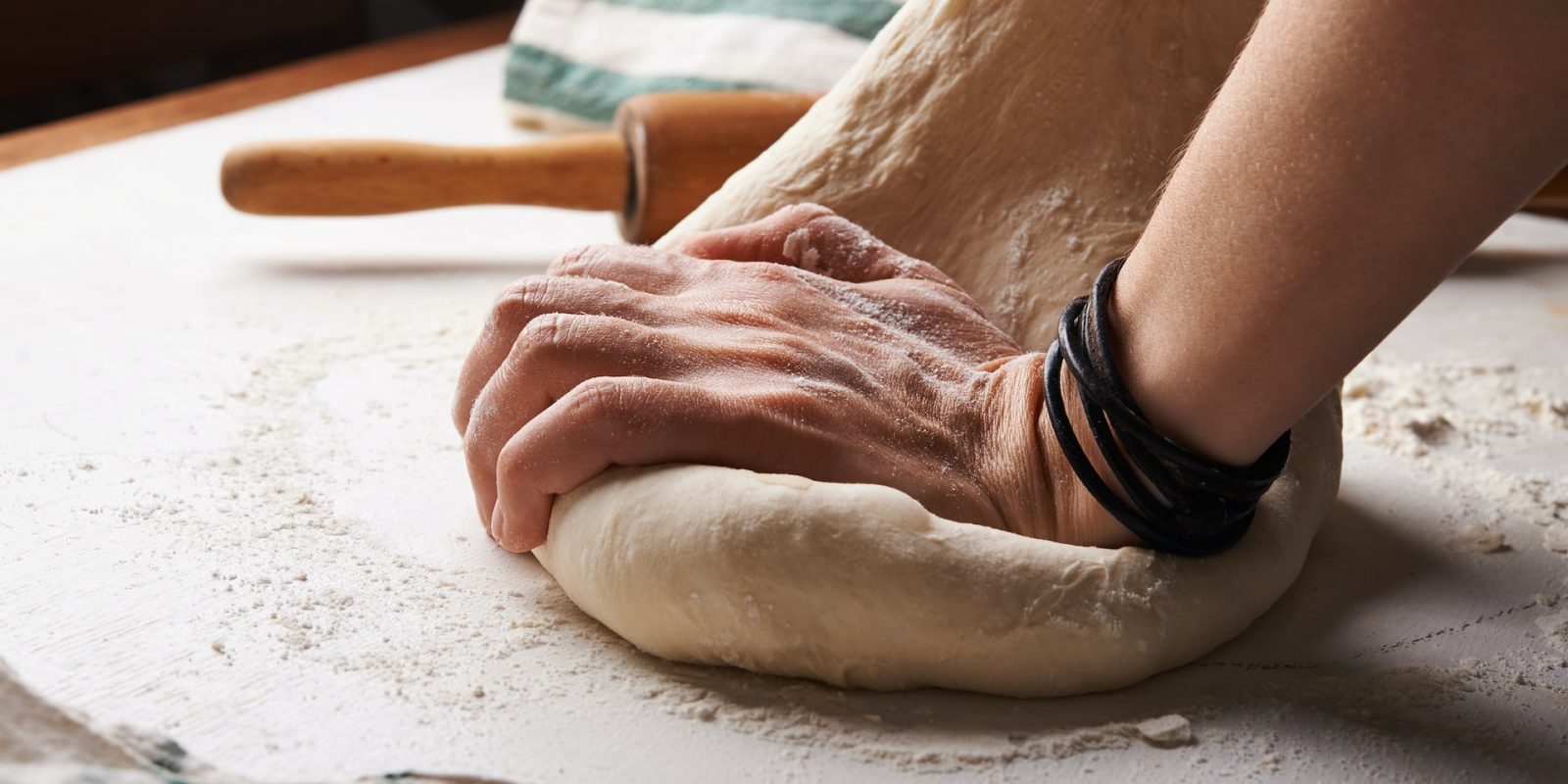Turkish bread, also known as pide or ramazan pidesi, is a traditional bread that has been enjoyed for centuries in Turkey and neighbouring countries. This bread is made from simple ingredients such as flour, yeast, salt, and water. Its distinct oval shape with pointed ends makes it easy to recognise.
Despite its popularity and delicious taste, some people wonder whether Turkish bread is healthy for them. The good news is that this type of bread can be a nutritious addition to your diet when consumed in moderation. Unlike white bread that undergoes heavy processing, Turkish bread retains more nutrients because of the use of whole wheat flour or semolina.
Furthermore, Turkish bread contains fibre which helps regulate digestion and reduce the risk of heart diseases. It also contains protein which promotes muscle building and repair. However, excessive consumption may lead to weight gain due to its high-carb content. Overall, including Turkish bread in your meals occasionally can be beneficial for your health if you practise portion control.
Nutritional Value
Turkish bread, also known as pide, is a traditional bread that has been consumed for centuries in Turkey and other Middle Eastern countries. It is a type of flatbread that is made from wheat flour, yeast, salt, and water. Turkish bread has a chewy texture and a unique flavour that makes it perfect for dipping in soups or as an accompaniment to grilled meats.
From a nutritional standpoint, Turkish bread provides some benefits but should be consumed in moderation. One slice of Turkish bread contains approximately 100 calories and provides small amounts of protein, fiber, and carbohydrates. However, it is also high in sodium due to the addition of salt during the baking process.
To make Turkish bread healthier, one can opt for whole wheat or multigrain varieties which contain more fibre and nutrients than regular white flour versions. Additionally, pairing it with healthy toppings such as avocado spread or hummus can increase the nutritional value while adding flavour to this classic Middle Eastern staple.
Health Benefits
Turkish bread, also known as pide, is a traditional Turkish flatbread that has become increasingly popular in recent years. It is made from wheat flour, water, yeast, salt and sometimes sugar or oil. While it may not be the healthiest form of bread available, there are still some health benefits to consuming it in moderation.
One potential benefit of Turkish bread is its high carbohydrate content. Carbohydrates are an important source of energy for the body and can help fuel physical activity and exercise. However, it is important to note that consuming too many carbohydrates can lead to weight gain and other health issues.
Another benefit of Turkish bread is that it contains some essential vitamins and minerals such as iron and B vitamins. Iron is necessary for the formation of red blood cells while B vitamins play a critical role in maintaining healthy brain function.
Overall, while Turkish bread may not be the healthiest option available, it can still provide some important nutrients when consumed in moderation as part of a balanced diet.
Potential Risks
Despite its delicious taste and fluffy texture, Turkish bread comes with potential health risks that you should be aware of. One of the biggest concerns is its high carbohydrate content. A single serving can contain up to 50 grammes of carbs, which can cause blood sugar spikes and weight gain if consumed in excess.
Another risk associated with Turkish bread is its high sodium content. Bread products are notorious for having high levels of salt, but Turkish bread takes it to the next level with some brands containing up to 500 milligrammes per slice. This amount exceeds the recommended daily intake of sodium and can lead to increased blood pressure and other health issues.
Lastly, traditional Turkish bread is made using refined flour, which means that it lacks essential nutrients such as fibre and vitamins. Consuming too much refined flour has been linked to an increased risk for obesity, heart disease, and diabetes. As a result, it’s important to consume Turkish bread in moderation or opt for healthier alternatives such as whole-grain options or gluten-free varieties.
Tips for Eating Healthy with Turkish Bread
While Turkish bread is a staple in many households, it can be difficult to determine whether or not it’s healthy for you. The answer depends on the type of Turkish bread you’re consuming. Traditional Turkish bread, also known as pide or simit, is made with flour, yeast, water and salt – all natural ingredients that are generally considered healthy. However, some commercial versions may contain added sugars and preservatives that could detract from its health benefits.
To ensure that you’re eating healthy with Turkish bread, consider making your own at home using fresh and organic ingredients. Alternatively, opt for whole wheat or multigrain varieties that offer more fibre compared to white flour options. Pairing your Turkish bread with protein-rich toppings such as hummus or grilled chicken can also boost its nutritional value.
In conclusion, while Turkish bread can be a healthy choice when made with natural ingredients and consumed in moderation, it’s important to be mindful of additives and choose the right varieties to maximise its health benefits. By following these tips for eating healthy with Turkish bread, you can indulge in this delicious food without compromising your overall well-being.
Alternatives to Turkish Bread
If you’re looking for an alternative to Turkish bread that’s healthier, there are many options to choose from. You might try whole-grain pita bread or flatbread, which can be just as satisfying as Turkish bread but with more fibre and nutrients. Brown rice tortillas are another great option if you’re looking for something gluten-free.
Another option is to switch out your bread entirely and opt for lettuce wraps or collard green wraps instead. These options provide additional vitamins and minerals while also being low in calories and carbohydrates.
Ultimately, it’s important to consider your dietary needs when choosing a bread alternative. If you’re trying to lower your carbohydrate intake, look for options that are higher in protein or healthy fats like almond flour-based breads or chia seed crackers. Above all else, remember that moderation is key when it comes to any food choices – even healthy ones!
Conclusion
In conclusion, Turkish bread is a healthy option as part of a balanced diet. Though it may contain slightly more calories and carbohydrates than other types of bread, it is also high in protein and fibre. Additionally, Turkish bread is typically made with simple ingredients such as flour, water, yeast, and salt; no preservatives or artificial additives are included.
It’s worth noting that the nutritional value of Turkish bread can vary depending on the recipe and preparation methods used. When selecting Turkish bread at the grocery store or bakery, it’s important to read labels carefully to ensure that unhealthy ingredients are not added.
Overall, incorporating Turkish bread into your diet in moderation can provide you with essential nutrients while satisfying your cravings for delicious baked goods. So go ahead and enjoy some fresh-baked Turkish bread alongside your favourite meals!






